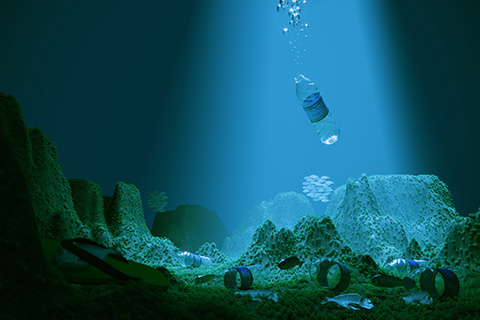A marine bacterium was genetically modified to break down plastic in salt water and reduce pollution.
Scientists at North Carolina State University genetically modified a marine microorganism to break down plastic. Specifically, the organism has the ability to break down polyethylene terephthalate (PET); it is a plastic that is a major contributor to microplastic pollution in the oceans and is often used in everything.
Nathan Crook points out that one way to curb microplastic pollution is to take the plastic out of the water and dump it in a landfill; however, it is complicated to do so, says the assistant professor of chemical and biomolecular engineering. Therefore, the best option is to break down these plastics into products that can be reused. To achieve this, an affordable way to break down the plastic is required.
How were the bacteria modified?
The researchers worked with two types of bacteria. The first is called Vibrio natriegens, it reproduces very fast in salt water; the second is called Ideonella sakaiensis, it produces enzymes that can break down PET and eat it.
The researchers used DNA from I. sakaiensis, which is responsible for producing enzymes that break down plastic and added that genetic sequence to a plasmid. Plasmids are genetic sequences that can replicate in a cell. That is, it is possible to introduce a plasmid into a foreign cell, and that cell obeys the instructions of the plasmid DNA. This is exactly what the scientists did.
By including the plasmid possessing the sakaiensis genes in the natriegens bacteria. Natriegens was able to produce enzymes on the surface of its cells. The scientists then demonstrated that natriegens could break down PET in a saltwater environment at room temperature.
It is not economically feasible to remove plastics from the ocean and rinse the salts before starting any plastic decomposition process; therefore, this discovery is really important.
Finally, the Universidad Internacional Iberoamericana (International Iberoamerican University) (UNIB) offers the Master in Environmental Management and Audits.

